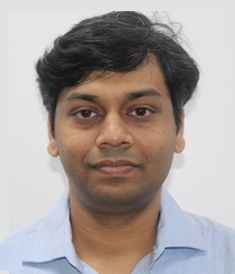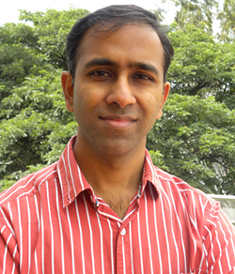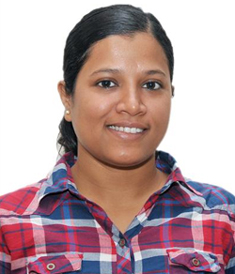Core Research
Talk Title, Abstract & Bio of Speakers

Subrata Mitra
Presentation Schedule: 2:05 PM - 2:50 PM
Talk Title: Towards Efficient System Design with Approximations and AI
Abstract: As more computation is moving to the cloud, there is a significant need to limit the cost of computation while the type of workloads, variety of users' interaction patterns and size of the data are ever increasing.
Interestingly, often these applications do not need very precise answers and the workload patterns, user interactions etc. have enough characteristics that are repetitive and can be "learned". Traditional system design did not focus much on learnable components in the architecture.
This talk will give an overview on how by embracing approximations and applying some recently proposed ML approaches around supervised deep learning (DL) and reinforcement learning (RL), we can redesign system components for big-data analytics and cloud computing to reduce the computational cost.
Specifically, this talk will discuss some ideas on how query processing for tasks like exploratory analytics and visual analytics can be handled, approximately, by DL models at the edge, instead of backend compute clusters. Further it will discuss how trained systems agents can protect users from diverging in their sequential analysis flow due to presence of such approximations, by choosing the right techniques to approximate the answer by inferring users' context of analysis. At the end this talk will briefly highlight how ML-based techniques can be used to redesign schedulers for compute clusters on the cloud to optimize resource usage.
These approaches are at a nascent stage and several open questions remain on how to operationalize such a dynamic system and make them more scalable and robust against failures.
Bio: Subrata Mitra is a Research Scientist at Adobe Research, India.
His research area is cloud and distributed systems, systems for machine-learning and use of machine-learning to solve challenging systems problems. Previously, he worked at Intel and Synopsys on new product development.
He received PhD in Electrical and Computer Engineering from Purdue University, West Lafayette, US, MS in Computer Engineering from University of Florida, Gainesville, US and BE from Jadavpur University, Kolkata, India.
Personal site: https://sites.google.com/site/subratamitraweb

Prateek Jain
Presentation Schedule: 2:55 PM - 3:40 PM
Talk Title: Simplicity Bias in Deep Learning + Research opportunities at Google Research India
Abstract: While deep neural networks have achieved large gains in performance on benchmark datasets, their performance often degrades drastically with changes in data distribution encountered during real-world deployment. In this work, through systematic experiments and theoretical analysis, we attempt to understand the key reasons behind such brittleness of neural networks in real-world settings.
More concretely, we demonstrate through empirical+theoretical studies that (i) neural network training exhibits "simplicity bias" (SB), where the models learn only the simplest discriminative features and (ii) SB is one of the key reasons behind non-robustness of neural networks. We will then briefly outline some of our (unsuccessful) attempts so far on fixing SB in neural networks illustrating why this is an exciting but challenging problem.
Bio: Dr. Prateek Jain is a Senior Researcher in Google AI, Bengaluru and adjunct faculty at the Department of Computer Science and Engineering at IIT Kanpur. He has been with Microsoft Research India and University of Texas at Austin. Dr. Jain did his PhD from University of Texas at Austin and B.Tech. from IIT Kanpur. His primary research area is mathematical foundations of machine learning.

Arpita Patra
Presentation Schedule: 3:45 PM - 4:35 PM
Talk Title: Secure Multi-party Computation
Abstract: Secure Multi-party Computation (MPC) is the standard-bearer and holy-grail problem in Cryptography that permits a collection of data-owners to compute a collaborative result, without any of them gaining any knowledge about the data provided by the other, except what is derivable from the result of the computation. This talk will discuss the fundamental concept of garbled circuits and the Yao's two-party computation which is the first MPC construct in the literature. In the end, I will briefly touch upon how MPC meets ML.
Bio: Arpita Patra is presently Associate Professor at Indian Institute of Science. Her area of interest is Cryptography, focusing on theoretical and practical aspects of secure multiparty computation protocols. She received her PhD from Indian Institute of Technology (IIT), Madras and held post-doctoral positions at University of Bristol, UK, ETH Zurich, Switzerland, and Aarhus University, Denmark. Her research has been recognized with a Google AI/ML Research Award, an NASI Young Scientist Platinum Jubilee Award, a SERB Women Excellence award, an INAE Young Engineer award and associateships with various scientific bodies such as Indian Academy of Sciences (IAS), National Academy of Engineering (INAE ), The World Academy of Sciences (TWAS). She is a council member of Indian Association for Research in Computing Science (IARCS) since December 2017.
